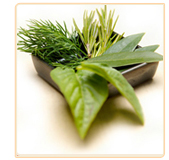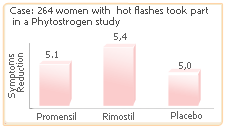Phytoestrogen Supplements in the Treatment of Menopause Symptoms
 Phytoestrogens are becoming an increasingly popular alternative to conventional hormone replacement therapies (HRT) which have recently been linked with cancer and heart disease. Phytoestrogens occur in plants and have a similar chemical structure as estrogen in human beings. For this reason they are thought to be successful in treating estrogen related illnesses or conditions. Menopause is one such condition which affects all women at some point in their lives and can come with a whole host of uncomfortable side effects. Although phytoestrogens are useful for some menopausal women, the lack of research into plant phytoestrogens means that they are not yet a natural alternative to HRT.
Phytoestrogens are becoming an increasingly popular alternative to conventional hormone replacement therapies (HRT) which have recently been linked with cancer and heart disease. Phytoestrogens occur in plants and have a similar chemical structure as estrogen in human beings. For this reason they are thought to be successful in treating estrogen related illnesses or conditions. Menopause is one such condition which affects all women at some point in their lives and can come with a whole host of uncomfortable side effects. Although phytoestrogens are useful for some menopausal women, the lack of research into plant phytoestrogens means that they are not yet a natural alternative to HRT.
Recent research however, has taken a more detailed look at phytoestrogen and in particular Isoflavone Clover Extract (ICE) which had been used by some menopausal women in the past to relieve hot flashes. In a randomized controlled trail researchers from three separate medical centers in the USA followed a group of 252 menopausal women, all of which were suffering from at least 35 hot flashes a week. Vegetarians and women who ingested large amounts of soy a week were excluded from the trail as their diets may contain more phytoestrogen than the average women regularly consumes. The subjects of this test were randomly assigned clover supplements which contain phytoestrogen, Promensil (82 mg of total isoflavones per day), Rimostil (57 mg of total isoflavones per day), or an identical placebo and were followed by researchers over a 12 week period.
 Each woman in the trail kept a daily diary so that researchers could keep track of the effect the phytoestrogen was having on menopausal hot flashes. 246 women finished the trail and a small improvement in hot flashes suffered could be found in all three groups that took part. The first group, who took Promensil, had a mean of 5.1 reductions in hot flashes per day whilst the Rimostil group had 5.4 and the placebo group 5.0. The fact that very little difference in the improvement of hot flashes could be identified in the three groups points to this type of phytoestrogen being ineffective, yet the phytoestrogen in both the Promensil and Rimostil had a small affect on improving hot flashes at a quicker rate than the placebo. Researchers concluded that the results for this type of phytoestrogen were not definitive enough to clinically establish this supplement as an effective treatment for hot flashes.
Each woman in the trail kept a daily diary so that researchers could keep track of the effect the phytoestrogen was having on menopausal hot flashes. 246 women finished the trail and a small improvement in hot flashes suffered could be found in all three groups that took part. The first group, who took Promensil, had a mean of 5.1 reductions in hot flashes per day whilst the Rimostil group had 5.4 and the placebo group 5.0. The fact that very little difference in the improvement of hot flashes could be identified in the three groups points to this type of phytoestrogen being ineffective, yet the phytoestrogen in both the Promensil and Rimostil had a small affect on improving hot flashes at a quicker rate than the placebo. Researchers concluded that the results for this type of phytoestrogen were not definitive enough to clinically establish this supplement as an effective treatment for hot flashes.
While this trail did not prove that phytoestrogens are effective in treating menopausal symptoms they should not be disregarded altogether in the treatment of hormonal aliments. Clover is just one source of phytoestrogen and others need to be tested thoroughly before phytoestrogens are dismissed as a treatment for menopause all together.



































